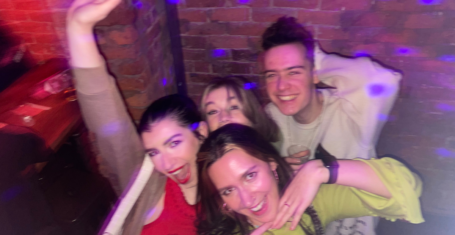
Junior Doctors have been striking outside Liverpool Women’s Hospital
“The Government know it’s wrong, yet they are still pressing ahead.”
Junior doctors have been striking for two days all over England as a protest against the Government over the debated new contract and it’s no different in Liverpool.
Outside the Liverpool Women’s Hospital this week, junior doctors have been taking part in the strike, rallying at the entrance to Grove Street.
The government claims that the present system is “outdated” and “unfair” and they want to improve it to make more services available seven days a week.
Basic pay on average is to be increased by 13.5%. But other elements of the pay package are to be curbed, including unsociable hours. For example, under the current scheme working weekends would lead to extra pay, but in the new scheme, junior doctors will be expected to work more weekend hours with little pay increase.
Dr Rachel Smith, who works at Liverpool Women’s Hospital, told the Liverpool Echo:
“The message is that this contract isn’t right. There will be huge gaps in the rota. The Government know it’s wrong, yet they are still pressing ahead.”
The Tab asked a Medical student at the University of Liverpool about their thoughts on the situation. Fourth year medic Alice said:
“I think the picture from most of us is that the contract is not fair, both for the doctors and the patients. The increase of hours by working more evenings and weekends will mean more junior doctors are overworked. This will make it easier for mistakes to be made in the patient care front.
“None of us want this, which is why it is so important that the government re-open negotiations with the BMA. This new contract is already pushing people away from wanting to work in the NHS, opening talk about newly qualified doctors moving to places like Australia. This will affect the amount of doctors employed in this country for the worst.”
G’wan you medics.
Patients have been asked to contact their GP, seek advice from their local pharmacist, call 111 or check the NHS Choices website. In an emergency, people should still call 999 or go to A&E.









































